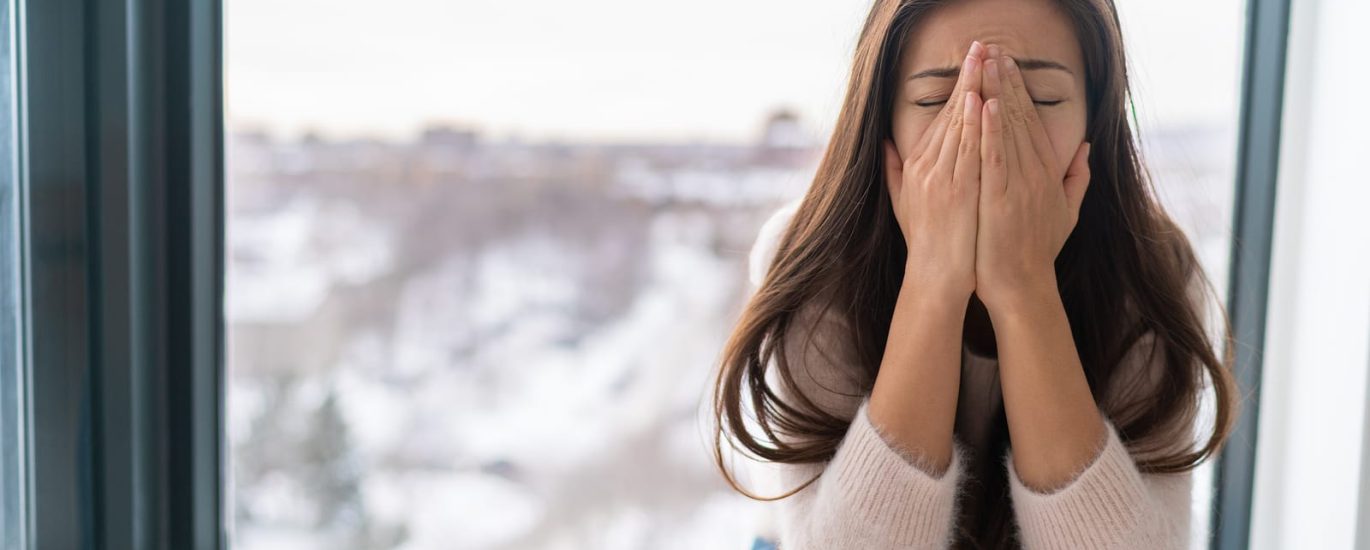Anxiety disorder is a natural response of the body to stress or a perceived threat. It is a feeling of unease, such as worry or fear, that can be mild or severe. Anxiety can be a normal and helpful response to certain situations, such as when preparing for an exam or a job interview, but it can also become excessive and interfere with daily life.
Anxiety disorders are a group of mental health conditions in which anxiety becomes overwhelming and persistent, leading to significant impairment in daily functioning. Examples of anxiety disorders include generalized anxiety disorder (GAD), panic disorder, social anxiety disorder, and specific phobias.
Types of Anxiety
Anxiety is a broad term that can refer to various types of conditions and disorders. Here are some of the most common types of anxiety:
- Generalized Anxiety Disorder (GAD): This is a chronic condition characterized by excessive and unrealistic worry about everyday events and activities.
- Panic Disorder: This is a type of anxiety disorder characterized by sudden and recurrent panic attacks, which are intense periods of fear or discomfort that reach a peak within minutes.
- Social Anxiety Disorder: Also known as social phobia, this condition involves intense fear or anxiety about social situations in which the individual may be scrutinized or judged by others.
- Specific Phobias: These are intense, irrational fears of specific objects or situations, such as spiders, heights, or flying.
- Obsessive-Compulsive Disorder (OCD): This is an anxiety disorder characterized by intrusive, repetitive thoughts or obsessions, often accompanied by compulsive behaviors that are performed to alleviate anxiety.
- Post-Traumatic Stress Disorder (PTSD): This is a condition that may develop after a person experiences or witnesses a traumatic event, and involves symptoms such as intrusive memories, avoidance of reminders, and heightened arousal.
- Separation Anxiety Disorder: This is a condition that typically develops in children, but can also affect adults, and involves excessive anxiety about separation from a specific person or place.
- Agoraphobia: This is a condition characterized by an intense fear of being in situations where escape may be difficult or help may not be available in the event of a panic attack or other anxiety-related symptoms.
Symptoms of Anxiety Disorder
Anxiety symptoms can vary depending on the individual and the type and severity of the anxiety disorder. However, some common symptoms of anxiety include:
- Excessive worry or fear about everyday situations
- Feeling restless or on edge
- Rapid heart rate or palpitations
- Sweating or trembling
- Difficulty concentrating or focusing
- Irritability or mood swings
- Muscle tension or tightness
- Sleep disturbances, such as insomnia or nightmares
- Avoidance of certain situations or activities
- Panic attacks, which can involve sudden feelings of intense fear, shortness of breath, and chest pain.
It’s important to note that not everyone with anxiety experiences all of these symptoms and some people may experience additional symptoms that are not listed here. If you are experiencing any of these symptoms and they are interfering with your daily life, it’s a good idea to speak with a healthcare professional who can help you determine whether you have an anxiety disorder and what treatment options may be appropriate for you.
Causes of Anxiety
Anxiety disorder can be caused by a combination of factors, including:
- Genetics: Anxiety disorders can run in families, suggesting a genetic component.
- Brain chemistry: Neurotransmitters in the brain that regulate mood and stress can be imbalanced, leading to anxiety.
- Environmental stressors: Traumatic events, chronic stress, and major life changes can all contribute to anxiety.
- Medical conditions: Certain medical conditions, such as thyroid disorders or heart disease, can cause symptoms of anxiety.
- Substance abuse: Alcohol, drugs, and other substances can contribute to anxiety symptoms.
- Personality traits: Individuals who are highly sensitive, perfectionistic, or have low self-esteem may be more prone to anxiety.
- Cognitive factors: Negative thinking patterns, such as catastrophizing or overgeneralizing, can contribute to anxiety.
It’s important to note that anxiety can be complex and multifaceted, and often there is no single cause. Identifying the specific factors that contribute to an individual’s anxiety can help inform appropriate treatment and management strategies.
Side Effects of Anxiety Disorder
Anxiety can have both physical and psychological side effects that can impact a person’s overall well-being. Here are some of the most common side effects of anxiety:
- Physical Symptoms: Anxiety can cause physical symptoms such as sweating, rapid heartbeat, shortness of breath, headaches, muscle tension, and stomach problems.
- Sleep Problems: Anxiety can cause insomnia or other sleep disorders, which can make it difficult to get restful sleep and lead to daytime fatigue.
- Cognitive Impairment: Anxiety can impact a person’s ability to concentrate and make decisions, leading to cognitive impairment and decreased productivity.
- Mood Disorders: Anxiety can lead to the development of mood disorders such as depression, which can exacerbate anxiety symptoms.
- Social Isolation: Anxiety can cause individuals to avoid social situations or become isolated, which can impact their relationships and overall quality of life.
- Substance Abuse: Some individuals may turn to drugs or alcohol to cope with anxiety symptoms, which can lead to addiction and further health problems.
- Physical Health Issues: Chronic anxiety can lead to physical health issues such as heart disease, high blood pressure, sexual health and gastrointestinal problems.
It’s important to note that anxiety can have a significant impact on a person’s quality of life, and seeking professional help and support can be crucial for managing symptoms and improving overall well-being.
Treatment of Anxiety Disorder
- Therapy: Therapy is often the first line of treatment for anxiety. Cognitive Behavioral Therapy (CBT) is a type of therapy that is particularly effective in treating anxiety by helping individuals learn how to recognize and challenge negative thoughts and beliefs.
- Medication: There are several types of medication that may be used to treat anxiety, including antidepressants, benzodiazepines, and beta-blockers. These medications can help to reduce anxiety symptoms and improve overall mood.
- Self-Care: Practicing self-care techniques can also be helpful in managing anxiety symptoms. Examples include exercise, yoga, meditation, deep breathing, and mindfulness.
- Lifestyle Changes: Making certain lifestyle changes can also be helpful in managing anxiety. This can include reducing caffeine intake, getting enough sleep, avoiding alcohol and drugs, and reducing stress.
- Support Groups: Joining a support group can also be helpful in managing anxiety. Support groups provide a safe and supportive environment where individuals can share their experiences, receive advice, and find encouragement from others who are going through similar challenges.
It’s important to work with a healthcare professional to determine the best treatment plan for your individual needs. Treatment for anxiety is often effective, and many individuals are able to manage their symptoms and lead fulfilling lives.
Related



